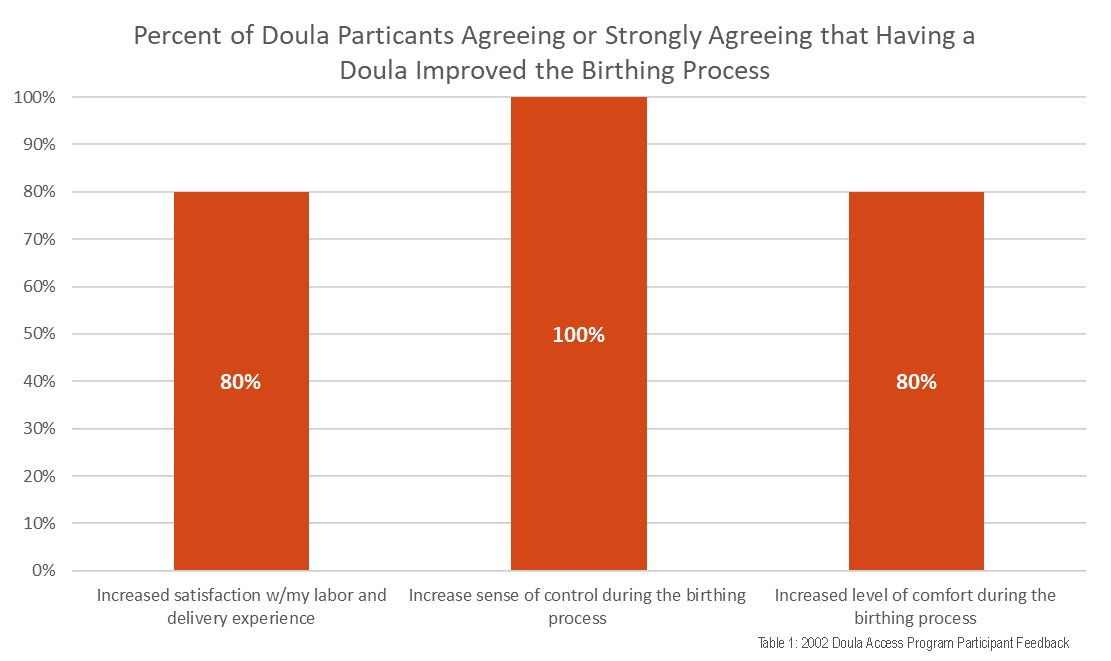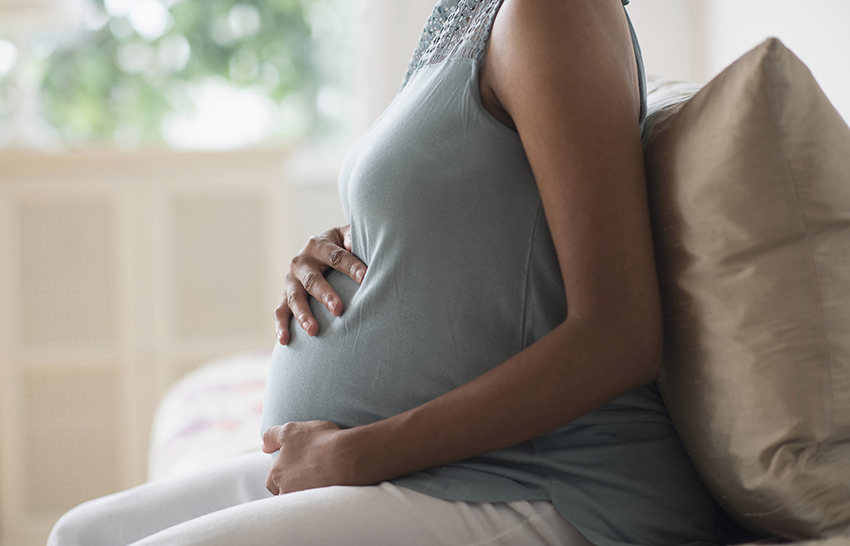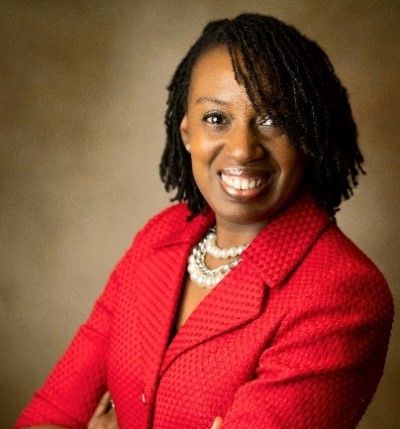

Each year, our nation celebrates Black Maternal Health Week from April 11-17. 1 Given that this week occurred within the past month, we would especially like to highlight the important role doulas can fill to address maternal health disparities among women of color. The Institute for Healthcare Improvement has also made Black maternal health outcomes a priority area through a project focused on health systems redesign, where “locally-driven, co-designed, rapid improvements” target “the interface of health care delivery, the experience of Black people who birth, and community support systems.”2
As the topic of Black maternal health and birth outcomes has been elevated nationally, the role of the community support component and, in particular, the doula as a partner in the birthing process have come into focus. We suggest there are good reasons to invest greater resources to support the vital work of doulas which can be seen in the growing need for training, coverage of their services, and related areas that support not only the fabric of psycho-social and physical health, but also the overall well-being of Black people who birth.
Background
According to the Centers for Disease Control and Prevention (CDC),3 maternal mortality rates in the United States in 2020 for the total population was 23.8 deaths per 100,000 live births, compared to 20.1 in 2019, and 17.4 in 2018. Among non-Hispanic Black women, mortality rates have been rising relative to other groups, with mortality rates of 37.3 in 2018, 44.0 in 2019, and 55.3 in 2020. Rates increase with maternal age, where differences in age groups were statistically significant. The rates for Black women where significantly higher than rates for any other racial or ethnic group. Additionally, based on Maternal Mortality Review Committees in the United States between 2017 and 2019,4 where comprehensive death reviews were performed during or within a year of pregnancy, cardiac and coronary conditions were the leading underlying cause of death among Black persons at 15.5%. These persistent and adverse outcomes affect the lives of many women, their families, and communities.
Despite these known challenges and health disparities, we are filled with optimism because we see tremendous potential for system improvements and greater responsiveness to the needs of the communities they serve. Sealy-Jefferson has articulated the need for a perspective that “calls of different research questions-ones that are not bound by the current available data, are not based solely (on) the intellectual curiosity of researchers, are informed by relevant theories and frameworks, and use participatory methodologies for action.”5 She advocates for a Black maternal health perspective that moves beyond racial inequities to understand the underlying social and ecological context of the drivers of health.
Other authors6,7 have recently joined their voices to national stage by convening key stakeholders to examine and explore viable potential avenues to pursue in achieving health equity and have communicated those roadmaps for action. We would like to share insights from efforts from the State of California and our Inland Empire region, where the future is growing brighter as strategic momentum is gained for this patient population.
Authors from the National Health Law Program Doula Report suggest that one potential solution to help improve both maternal and infant health outcomes is to expand access to full spectrum doula care.8 They note that “doulas provide individually-tailored and client-centered care to pregnant and postpartum people through information, education, and physical, social, and emotional support. Doulas also have the potential to help address health disparities by reducing the impacts of racism on pregnant people of color. In a 2018 survey, a majority of pregnant people who gave birth in California affirmatively expressed interest in having doula support for future births.” 8
Progress
In 2018, the Inland Empire Health Plan partnered with the Riverside Community Health Foundation to assist in addressing the disparity in birth outcomes among their members. The Doula Access Program would serve as a pilot program under the administration of the Riverside Community Health Foundation. While the final evaluation of the project will be released in 2024, the Foundation has effectively worked with more than 45 doulas in the Inland Empire to serve families who may not have otherwise had access to the support of a doula. Molina Healthcare joined the partnership and more than 570 families have been served since January of 2019. Services included three prenatal visits, birth support, and three postpartum visits. The Riverside Community Health Foundation Impact Statement for 2022 revealed that all (100%) mothers who completed the program indicated that they would recommend doula services to others. In addition, nearly all participants attributed increased satisfaction, control, and comfort during the birth process to doula services.9

Now that doulas are included as providers under Medicare/Medi-Cal, these partnerships and collaborative efforts are a must. We appreciate the generous support from our local health plans, hospitals, and public health departments. However, the need for a collective impact approach within the health system and increased involvement in this work has grown exponentially.
Call to Action: How can doulas be effectively integrated into the care team in the Inland Empire? How can you help?
The Riverside Community Health Foundation will continue to support this effort by transitioning the Doula Access Program to the Birthworkers Collaborative of the Inland Empire. Doula training, provider enrollment support, birth worker peer support and hospital planning sessions will continue. (For more information or to become involved, please send an email to [email protected].)
According to Landry, et.al, “Examination of the implementation of the first phases of a collective impact model suggest that a significant amount of progress can be made in a relatively short amount of time to establish the groundwork for collaboration and implementation of strategies to address racial disparities in maternal and child health and align local and state priorities regardless of capacity to begin the work”.10
We hope that we have articulated compelling reasons why this is an important area of public health and that the opportunity for improvements in our health system is significant if we work together in the community. We believe the time to act is now, and we look forward to making an impact with the members of our community!
Co-Authors' Bios:

Shené Bowie-Hussey, DrPH, MPH
Dr. Bowie-Hussey serves as the Vice President of Health Strategies and Chief Strategic Officer for the Riverside Community Health Foundation. She is also an Associate Clinical Professor with the Loma Linda University School of Public Health. Her community health priorities include translational research implementation, systems change, community health, and provider training. Her service to the community as a birth doula and childbirth educator began more than 25 years ago.

Karl J. McCleary, PhD, MPH
Dr. McCleary is the Executive Director of the Center for Health Strategy and Innovation, Associate Dean of Strategy, and a Professor at the School of Public Health. He also serves as a Faculty Scholar in the Loma Linda University Health Institute for Health Policy and Leadership. His research interests include health policy, transformation and strategic change; innovation, systems thinking and redesign; and population health.
References:
- Celebrating Black Maternal Health Week. Health Resources and Services Administration, Maternal and Child Health, Rockville, MD. Retrieved from https://mchb.hrsa.gov/programs-impact/focus-areas/maternal-health/black-maternal-health.
- Black Maternal Health: Reducing Inequities through Community Collaboration. Institute for Healthcare Improvement, Boston, MA. Retrieved from https://www.ihi.org/resources/Pages/Publications/black-maternal-health-reducing-inequities-through-community-collaboration.aspx
- Hoyert, D. L. (2020). Maternal mortality rates in the United States. NCHS Health E-Stats. 2022. DOI: https://dx.doi.org/10.15620/cdc:113967.
- Trost, S. L., Beauregard, J., Chandra, G., Njie, F., Berry, J., Harvey, A., & Goodman, D. A . Pregnancy-Related Deaths: Data from Maternal Mortality Review Committees in 36 US States, 2017-2019. Atlanta, GA: Centers for Disease Control and Prevention, US Department of Health and Human Services; 2022. Retrieved from https://www.cdc.gov/reproductivehealth/maternal-mortality/erase-mm/data-mmrc.html.
- Sealy-Jefferson, S. (2022, p. 3-4). Injustices in Black Maternal Health: A Call for Different Research Questions, Orientations, and Methodologies. Frontiers in Public Health, 10:860850. https://doi.org/10.3389/fpubh.2022.860850.
- Krishnamoorthi, M., Balbierz, A., Laraque-Arena, D., & Howell, E. A (2023). Addressing the National Crisis Facing Black and Latina Women, Birthing People, and Infants: The Maternal and Child Health Equity Summit. Obstetrics & Gynocology, 141(3), 467-472. Retrieved from https://journals.lww.com/greenjournal/Fulltext/2023/03000/Addressing_the_National_Crisis_Facing_Black_and.6.aspx.
- Matthews, K., Morgan, I., Davis, K, Estriplet, T., Perez, S, & Crear-Perry, J. A. (2021, October). Pathways to Equitable and Antiracist Maternal Mental Health Care: Insights from Black Women Stakeholders. Health Affairs, 40 (10), 1597-1604. https://do i.org/10.1377/hlthaff.2021.00808.
- Landry, S., Collie-Akers, V., Foster, K., Pecha, D., & Abresch, C. (2020). Assessing the Development of Collective Impact Initiatives Addressing Maternal and Child Health. Maternal and child health journal, 24(4), 405–411. https://doi.org/10.1007/s10995-020-02894-7.
- Chen, A., Robles-Fradet, A., & Arega, H. (2020, May 21). Building A Successful Program for Medi-Cal Coverage for Doula Care: Findings from a Survey of Doulas in California. National Health Law Program, Los Angeles, CA. Retrieved from https://healthlaw.org/resource/doulareport/.
- 2022 Annual Impact Statement, Riverside Community Health Foundation, Riverside, CA.
